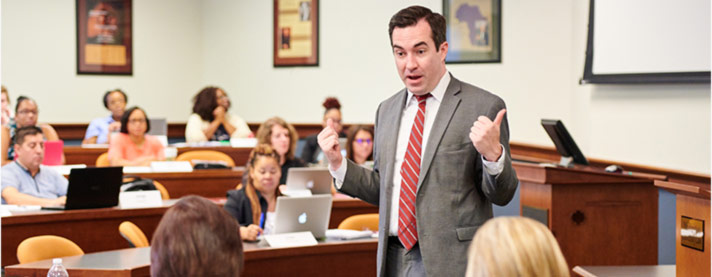During the immersion, students may have the opportunity to:
Meet in person with professors and classmates from across the globe
Take a one-credit elective with on-campus JD students
Observe live court hearings and meet with federal and state judges
Network with law firms, organizations and businesses
Tour legal landmarks in the city of St. Louis




